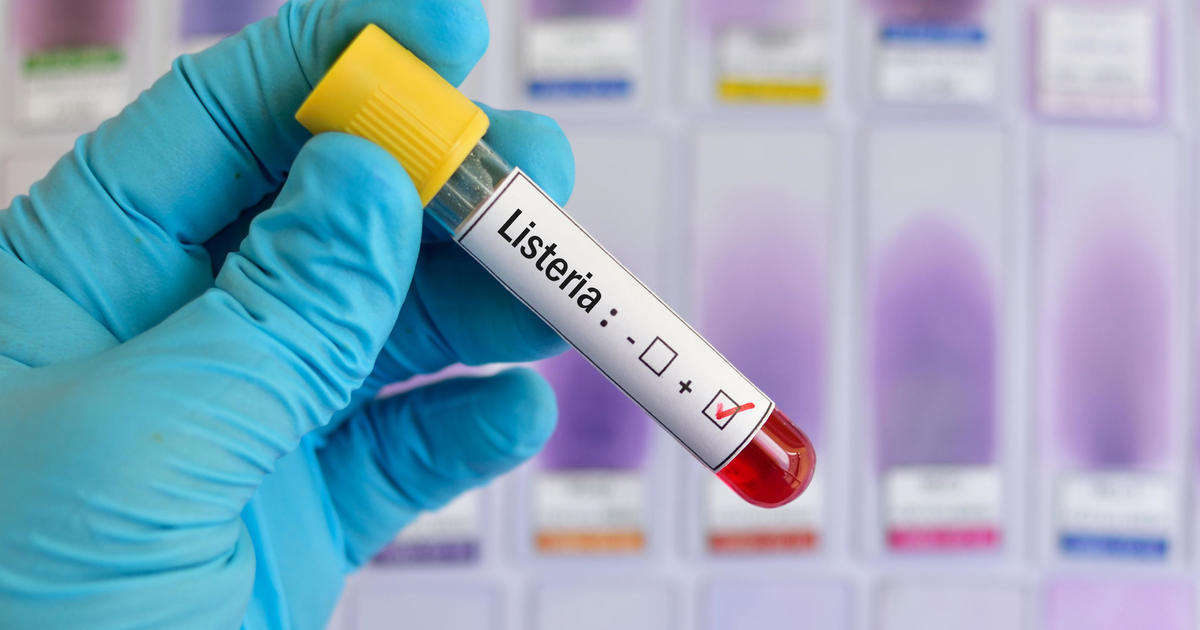Are you sure that steaming bowl of ramen is safe? The threat of "ramen lysteria," a potentially deadly foodborne illness, is real and demands our immediate attention.
"Ramen lysteria," while not a scientifically recognized term, alludes to the danger of Listeria monocytogenes contamination in food, including ramen ingredients. Listeria monocytogenes is a bacterium that can trigger listeriosis, a serious infection typically contracted by consuming contaminated food. It's particularly alarming because it thrives in conditions that would halt the growth of many other bacteria, such as cold temperatures, and can even survive freezing. This presents unique challenges for food safety, as refrigeration alone isn't enough to eliminate the risk. Symptoms of listeriosis can include fever, muscle aches, nausea, vomiting, and diarrhea. However, the consequences can be far more severe, leading to meningitis (inflammation of the brain and spinal cord), encephalitis (inflammation of the brain itself), and even death, especially in vulnerable populations such as pregnant women, newborns, the elderly, and individuals with weakened immune systems.
The gravity of Listeria contamination warrants proactive preventive measures. Thoroughly cooking meat, poultry, and eggs to the recommended safe internal temperatures is crucial to destroy the bacteria. Avoiding unpasteurized milk and cheese, which can harbor Listeria, is another essential step. Rigorous handwashing after handling raw meats or poultry is paramount in preventing the spread of the bacteria to other surfaces and foods. Furthermore, diligently cleaning and sanitizing kitchen surfaces and utensils that come into contact with raw foods can significantly reduce the risk of cross-contamination and subsequent infection.
- Unltd Indonesia The Gamechanger In Digital Marketing And Beyond
- Sadandwet Face The Ultimate Guide To Understanding And Mastering This Trend
The United States has witnessed the devastating impact of Listeria outbreaks in recent years. A stark reminder came in 2014 when contaminated cantaloupes were linked to an outbreak that sickened 147 individuals and tragically resulted in 33 deaths. In 2015, a similar crisis unfolded with Blue Bell ice cream, leading to 10 illnesses and 3 fatalities. These incidents underscore the critical need for vigilance and robust food safety practices throughout the supply chain, from production to consumption.
These outbreaks serve as stark reminders of the potential consequences of Listeria contamination and the importance of implementing effective preventive measures. By adhering to the guidelines mentioned above, individuals can substantially reduce their risk of infection and safeguard the health and well-being of their families. Education and awareness remain crucial in empowering consumers to make informed choices and adopt safe food handling practices.
While there isn't specific "ramen lysteria", any food can be contaminated with Listeria, following is the information related to Listeria monocytogenes in form of table.
- Lauren Smith Artist The Rising Star Redefining Modern Art
- Front Range Catering Boulder Colorado Your Ultimate Guide To Exceptional Catering Services
Below is a table providing information about Listeria monocytogenes, a bacterium that can cause serious foodborne illness.
| Category | Information |
|---|---|
| Scientific Name | Listeria monocytogenes |
| Type of Organism | Bacterium |
| Disease Caused | Listeriosis |
| Common Food Sources |
|
| Symptoms of Listeriosis |
|
| Incubation Period | 1 to 30 days (average 3 weeks) |
| High-Risk Groups |
|
| Prevention Measures |
|
| Treatment | Antibiotics (e.g., ampicillin, gentamicin) |
| Public Health Significance | Listeriosis is a reportable disease, and outbreaks can have serious consequences, particularly for vulnerable populations. |
| Reference Website | Centers for Disease Control and Prevention (CDC) - Listeria |
It is crucial to emphasize that while the term "ramen lysteria" is not technically accurate, the underlying risk of Listeria monocytogenes contamination in food remains a significant concern. This bacterium can cause severe food poisoning with potentially life-threatening consequences. Vigilance, adherence to safe food handling practices, and prompt medical attention when symptoms arise are essential in mitigating the risks associated with Listeria infection.
- Bacteria:Listeria monocytogenes is a bacterium capable of causing food poisoning.
- Food poisoning:Listeria monocytogenes can lead to food poisoning upon ingestion.
- Symptoms: Symptoms of Listeria food poisoning include fever, muscle aches, nausea, vomiting, and diarrhea.
- Prevention:Listeria can be prevented by cooking meat, poultry, and eggs to safe internal temperatures, avoiding unpasteurized milk and cheese, and maintaining proper hand hygiene after handling raw meat or poultry.
- Outbreaks:Listeria has been implicated in numerous foodborne illness outbreaks across the United States in recent years.
- Public health concern:Listeria poses a significant public health threat.
- Deadly: In severe cases, Listeria can result in meningitis, encephalitis, and even death.
Listeria infection is a serious illness that can have life-threatening consequences. Preventing infection through diligent food safety practices is paramount. In the event of suspected exposure to Listeria, seeking immediate medical attention is essential.
The significance of understanding the nature of bacterial contamination in our food supply cannot be overstated, particularly when considering the potential risks associated with seemingly innocuous meals like a bowl of ramen. While the term "ramen lysteria" isn't scientifically established, the underlying principle that bacteria such as Listeria monocytogenes can contaminate food and cause severe illness is critically important. It is found in raw or undercooked meat, poultry, and eggs, and can also be found in unpasteurized milk and cheese. Listeria can trigger various symptoms, spanning from mild fever and muscle aches to more severe conditions like nausea, vomiting, and diarrhea. In the most extreme scenarios, it can lead to life-threatening complications, including meningitis, encephalitis, and even death.
To effectively prevent infection, it is essential to comprehend the relationship between bacteria and foodborne illnesses. Bacteria, microscopic organisms found ubiquitously in our environment, can thrive in diverse settings, including food. When bacteria infiltrate food, they multiply rapidly, producing toxins that can induce illness in consumers. Listeria monocytogenes poses a particular threat due to its capacity to cause severe food poisoning. Preventing Listeria contamination involves several crucial steps: thoroughly cooking meat, poultry, and eggs to safe internal temperatures, avoiding the consumption of unpasteurized milk and cheese, and practicing meticulous hand hygiene, especially after handling raw meat or poultry.
The interconnectedness between bacterial contamination and foodborne illness represents a significant public health challenge. A proactive approach to prevention, driven by awareness and education, can effectively mitigate the risks associated with food poisoning and safeguard public health.
Food poisoning, a common affliction resulting from the consumption of contaminated food, is frequently characterized by a range of unpleasant symptoms, including nausea, vomiting, diarrhea, and abdominal cramps. In severe cases, the consequences of food poisoning can escalate, leading to dehydration, kidney failure, and even death. Listeria monocytogenes stands out as a particularly concerning pathogen due to its potential to induce severe food poisoning. This bacterium can be found in various food sources, including raw or undercooked meat, poultry, eggs, as well as unpasteurized milk and cheese. To effectively prevent Listeria food poisoning, it is imperative to adhere to safe cooking practices, ensuring that food reaches the recommended internal temperature, and to avoid the consumption of unpasteurized milk and cheese products.
Recent years have witnessed several notable outbreaks of Listeria food poisoning in the United States, underscoring the need for vigilance and robust food safety measures. In 2014, an outbreak linked to contaminated cantaloupes resulted in 147 reported illnesses and 33 fatalities. Similarly, in 2015, contaminated Blue Bell ice cream was identified as the source of another Listeria outbreak, leading to 10 illnesses and 3 deaths. These incidents serve as stark reminders of the potential consequences of Listeria contamination and the importance of implementing effective preventive measures.
Understanding the relationship between Listeria and food poisoning is critical in mitigating the risks associated with this pathogen. By promoting awareness and implementing preventive strategies, we can effectively protect ourselves and our families from the dangers of Listeria food poisoning.
Symptoms of Listeria food poisoning can manifest as fever, muscle aches, nausea, vomiting, and diarrhea. These symptoms can vary in severity, ranging from mild discomfort to life-threatening complications. Listeria is commonly found in raw or undercooked meat, poultry, eggs, and unpasteurized milk and cheese. When contaminated food is ingested, the bacteria can infiltrate the body, leading to infection.
The onset of symptoms typically occurs within 1 to 4 days after consuming contaminated food. Common indicators of Listeria food poisoning include fever, muscle aches, nausea, vomiting, and diarrhea. In severe cases, this infection can lead to dehydration, kidney failure, and even death. Early detection and prompt medical intervention are crucial in preventing severe outcomes.
Individuals who suspect they have consumed food contaminated with Listeria should seek medical attention without delay. Timely diagnosis and treatment can significantly reduce the risk of complications and improve the chances of a full recovery.
The preventive measures are essential to avert Listeria infection. The heat from cooking meat, poultry, and eggs to a safe internal temperature effectively eliminates Listeria bacteria. Avoiding unpasteurized milk and cheese is also vital, as these products can harbor the bacteria. Furthermore, consistent handwashing after handling raw meat or poultry is critical to prevent the spread of Listeria bacteria.
By adhering to these preventive measures, individuals can significantly reduce the risk of Listeria infection and protect their families. Here are additional tips to minimize the risk of exposure:
- Ensure meat reaches an internal temperature of 145 degrees Fahrenheit, poultry to 165 degrees Fahrenheit, and eggs to 160 degrees Fahrenheit.
- Opt for pasteurized milk and cheese to eliminate the risk of Listeria contamination.
- Wash hands thoroughly after handling raw meat or poultry to prevent the transfer of bacteria.
- Regularly clean and disinfect surfaces that come into contact with raw meat or poultry to prevent cross-contamination.
These preventive measures, when consistently practiced, provide a robust defense against Listeria infection, ensuring the safety and well-being of individuals and families.
Listeria is a significant public health concern, responsible for numerous foodborne illness outbreaks in the United States. Outbreaks can lead to severe illness, hospitalization, and even death.
- Outbreak 1: In 2014, contaminated cantaloupes caused 147 illnesses and 33 deaths.
- Outbreak 2: In 2015, Blue Bell ice cream was linked to 10 illnesses and 3 deaths.
- Outbreak 3: In 2017, contaminated romaine lettuce resulted in 172 illnesses and 5 deaths.
- Outbreak 4: In 2018, contaminated sprouts led to 11 illnesses and 1 death.
The recurrence of these outbreaks emphasizes the importance of preventive measures, including thorough cooking, avoiding unpasteurized products, and practicing diligent hand hygiene.
Listeria stands as a serious public health concern due to its potential to cause severe food poisoning, resulting in hospitalization and even fatalities. This bacterium is commonly found in raw or undercooked meat, poultry, and eggs, as well as unpasteurized milk and cheese products. Consumption of contaminated food can lead to a range of symptoms, including fever, muscle aches, nausea, vomiting, and diarrhea. In severe cases, Listeria infection can progress to meningitis, encephalitis, and even death.
The connection between Listeria and public health is underscored by numerous outbreaks of foodborne illness in the United States. For example, a 2014 outbreak linked to contaminated cantaloupes caused 147 illnesses and 33 deaths, while a 2015 outbreak traced to contaminated Blue Bell ice cream resulted in 10 illnesses and 3 deaths.
Understanding the link between Listeria and public health is vital in preventing foodborne illnesses. Implementing preventive measures, such as cooking food to safe internal temperatures, avoiding unpasteurized products, and maintaining proper hand hygiene, can significantly reduce the risk of Listeria infection and protect public health.
Listeria poses a significant health risk due to its ability to cause severe complications, including meningitis, encephalitis, and even death. This bacterium infiltrates the body through contaminated food and can spread to the brain, causing inflammation and damage.
- Meningitis:Listeria can induce meningitis by invading the bloodstream and targeting the brain, leading to symptoms like fever, headache, stiff neck, and nausea. Untreated meningitis can be fatal.
- Encephalitis:Listeria can cause encephalitis by similarly infiltrating the bloodstream and damaging brain tissue, resulting in symptoms such as fever, headache, confusion, and seizures. Untreated encephalitis can also be fatal.
- Death: In severe cases, Listeria infection can be fatal, often due to complications such as meningitis or encephalitis.
Preventing Listeria infection is essential to avoiding these deadly complications. Implementing preventive measures, such as cooking food thoroughly and practicing proper hygiene, can significantly reduce the risk of infection.
Here are some frequently asked questions about Listeria:
Question 1: What is Listeria?
Listeria is a type of bacteria that can cause food poisoning. It is found in raw or undercooked meat, poultry, and eggs, and can also be found in unpasteurized milk and cheese.
Question 2: What are the symptoms of Listeria food poisoning?
The symptoms of Listeria food poisoning can include fever, muscle aches, nausea, vomiting, and diarrhea. In severe cases, Listeria food poisoning can cause meningitis, encephalitis, and even death.
Question 3: How can I prevent Listeria infection?
Listeria infection can be prevented by cooking meat, poultry, and eggs to a safe internal temperature, avoiding unpasteurized milk and cheese, and washing hands thoroughly after handling raw meat or poultry.
Question 4: What should I do if I think I have Listeria food poisoning?
If you think you have Listeria food poisoning, you should see a doctor right away. Early diagnosis and treatment can help to prevent serious complications.
Question 5: Can Listeria be fatal?
Yes, in severe cases, Listeria can be fatal. Listeria can cause meningitis, encephalitis, and other complications that can lead to death.
Question 6: What are the key takeaways about Listeria?
Listeria poses a serious public health concern and can lead to severe food poisoning and even death. Preventive measures, such as proper cooking, avoiding unpasteurized products, and practicing good hygiene, can significantly reduce the risk of infection. Seeking immediate medical attention is vital if you suspect you have Listeria food poisoning.
Understanding the link between Listeria and food poisoning is crucial in preventing infection and protecting public health.
Listeria poses a significant threat of severe food poisoning and even death. It is commonly found in raw or undercooked meat, poultry, and eggs, as well as unpasteurized milk and cheese. Symptoms of Listeria food poisoning include fever, muscle aches, nausea, vomiting, and diarrhea, and in severe cases, can lead to meningitis, encephalitis, and death.
Addressing Listeria as a public health concern requires implementing preventive measures such as cooking food to safe internal temperatures, avoiding unpasteurized products, practicing good hygiene, and seeking immediate medical attention if you suspect you have Listeria food poisoning.
- Entangled Cat Cafe Photos Your Ultimate Guide To Purrfect Adventures
- Jurnee Lane Rising Star Of The Music World


